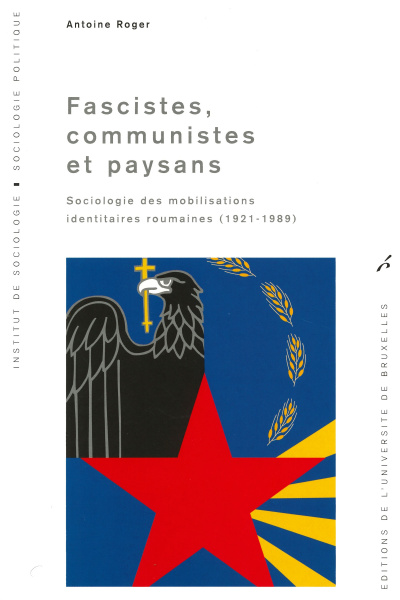Fascistes, communistes et paysans
Sociologie des mobilisations identitaires roumaines (1921-1989)
First Edition
Et si le « problème des minorités » n'était pas la cause mais plutôt une conséquence des mobilisations nationalistes en Roumanie ? Read More
Dans l'entre-deux-guerres comme sous le régime communiste, les autorités roumaines n'eurent de cesse de glorifier le "génie national" et d'exalter les valeurs paysannes. Ces orientations communes sont généralement mises sur le compte d'un antagonisme entre population majoritaire et minorités nationales. En 1921, toutes les provinces roumaines furent regroupées dans un même État. Sur le territoire ainsi formé, les minorités nationales représentaient 28,1% de la population totale et 41,4% de la population urbaine. Si les frontières furent redessinées après la seconde guerre mondiale, une forte minorité magyare resta implantée en Transylvanie. Le lien de cause à effet semble alors des plus évidents : le nationalisme développé par les dirigeants de l'entre-deux-guerres et de la période communiste aurait été motivé par un objectif d'homogénéisation culturelle ; la référence aux valeurs paysannes aurait été un moyen d'ostraciser les minorités implantées dans les villes.
L'ouvrage s'inscrit en faux contre cette lecture. Il vise à démontrer que le "problème des minorités" n'est pas la cause première des mobilisations appuyées sur des référents nationaux et paysans mais constitue plutôt une de leurs conséquences. Pour jeter un nouvel éclairage sur les crispations identitaires roumaines, une grille de lecture théorique est mise au point qui croise deux variables : la dépendance économique de la Roumanie sur le plan international ; les rapports établis sur le plan interne entre les dirigeants et la paysannerie. Les repères ainsi posés permettent ensuite de mettre au jour un mélange de continuités et de ruptures entre les périodes considérées. L'analyse est susceptible d'intéresser le chercheur averti aussi bien que l'honnête homme. Elle doit aider à mettre en perspective, non seulement le nationalisme roumain, mais aussi l'ensemble des mobilisations identitaires observées dans les Balkans.
Specifications
- Publisher
- Éditions de l'Université de Bruxelles
- Author
- Antoine Roger,
- Collection
- Political Science | n° 8
- ISSN
- 13786571
- Language
- French
- Publisher Category
- Publishers own classification > Political Science
- BISAC Subject Heading
- POL000000 POLITICAL SCIENCE
- Onix Audience Codes
- 06 Professional and scholarly
- CLIL (Version 2013-2019)
- 3283 SCIENCES POLITIQUES
- Subject Scheme Identifier Code
- Thema subject category: Political science and theory
Paperback
- Publication Date
- 19 January 2009
- ISBN-13
- 978-2-8004-1437-9
- Extent
- Main content page count : 416
- Code
- 1437
- Dimensions
- 110 x 180 x 21 cm
- Weight
- 733 grams
- ONIX XML
- Version 2.1, Version 3

